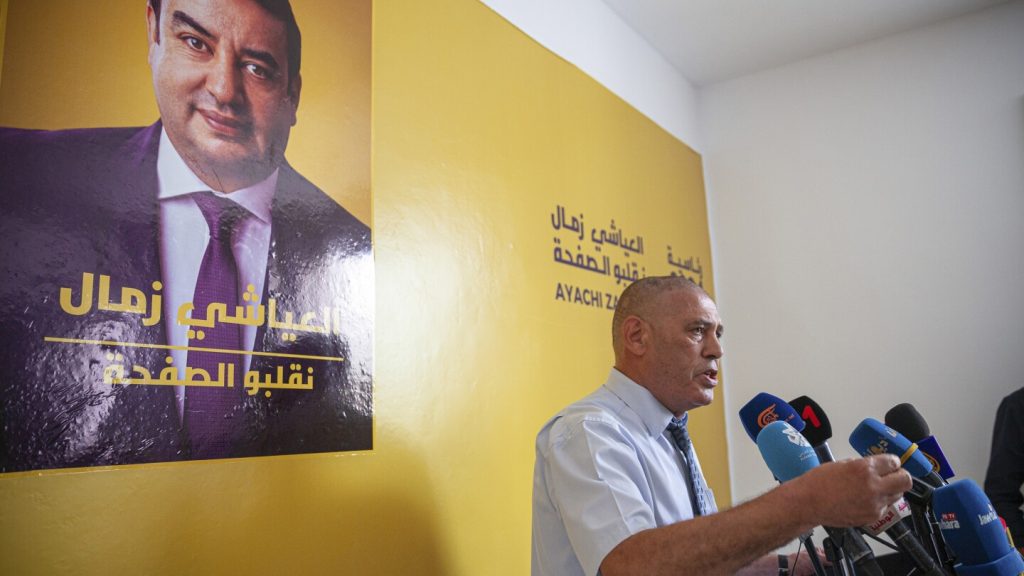In Tunisia, one of the candidates challenging President Kais Saied in the upcoming presidential election has been sentenced to prison on fraud charges. Ayachi Zammel, a little-known businessman and head of Tunisia’s Azimoun party, was convicted of falsifying signatures on his candidacy papers. Despite his imprisonment, Tunisia’s election authority confirmed that Zammel would still be eligible to run in the election scheduled for October 6. This comes amid a crackdown on political opponents, as several other candidates have also faced criminal charges and prosecution in the lead-up to the election.
The sentencing of Zammel is part of a pattern of political repression in Tunisia. Other presidential candidates, including Lotfi Mraihi, Nizar Chaari, and Karim Gharbi, have also been targeted with charges such as vote buying and signature fraud. In addition, Abdellatif El Mekki, a reinstated candidate, was arrested on charges related to a murder investigation from 2014, which critics have labeled as politically motivated. The imprisonment of prominent critics of President Saied, such as Abir Moussi and Rached Ghannouchi, further raises concerns about Tunisia’s democratic backslide in the run-up to the election.
The crackdown on opposition figures in Tunisia has drawn condemnation from civil liberty advocates and human rights organizations. Amnesty International has described it as a “clear pre-election assault on the pillars of human rights and the rule of law.” The situation has heightened fears about the integrity of the upcoming election and the potential for further repression of political dissent in Tunisia. Despite the challenges faced by opposition candidates, such as Zammel, there are concerns about the fairness and transparency of the electoral process in Tunisia in the coming months.
The case of Ayachi Zammel highlights the precarious situation facing political candidates in Tunisia as they seek to challenge the ruling establishment. Despite facing imprisonment, Zammel’s attorney maintains that he plans to continue his campaign from behind bars. The outcome of the election on October 6 remains uncertain amid accusations of political interference and manipulation of the electoral process. With over 50 countries holding elections in 2024, the global community will be closely monitoring developments in Tunisia to ensure that the democratic rights of its citizens are upheld and respected.
As the international community observes the situation in Tunisia, there is growing concern about the erosion of democratic norms and the rule of law in the country. The imprisonment of opposition figures and the targeting of political opponents raise questions about the credibility of the electoral process and the ability of Tunisian citizens to freely participate in choosing their leaders. The outcome of the upcoming election will be closely watched to determine whether Tunisia can maintain its democratic progress or if it risks sliding further into authoritarianism.


